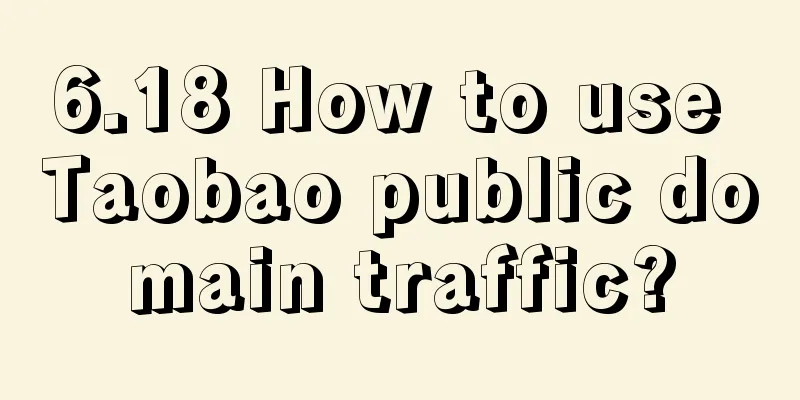Google SEO Google search skills, how to use Google to search for information?

|
Recently, many friends have asked me if I know how to do Google SEO, and asked me to help check his foreign trade website, or to operate and optimize his website on their behalf. Since I have been engaged in Baidu SEO before, I still don’t know much about Google SEO. Recently, I have also been learning Google SEO. Here I will share with you some of my experiences, Google SEO Google search skills, how to use Google search information methods? Google SEO Google search skills, how to use Google to search for information? Google search command skills collection 2. Site instructions. This command is quite familiar to SEOers, and they will use it when checking the included URLs. Well, in addition to query and collection, it actually has some very practical functions that you may not know. The general search format is [site: + URL], such as site: sdocos.com. In fact, the site command is very powerful and can even break through the administrator privileges of certain websites. When you want to find some information on Facebook, LinkedIn, etc., it is difficult to find it without permission. At this time, if you make good use of the site to break through externally (search engines), you are likely to find the information you want. How to do it? Search format [brand (demand word) site: + website] 3. Plus and minus sign search command. For many search users, their search habit is to directly enter keywords in the search engine input box and then search for answers. The consequence of doing this is undoubtedly that relevant information can be retrieved, but the amount of information is too large and it is impossible to find accurate content quickly. The benefits of plus and minus signs can be well highlighted at this time. Example 1: When you enter "cup + email + phone number + address" in the search engine, it means that the content you want to search must include content related to the keyword cup, and contain information about email, phone number, and address. Example 2: Enter "cup-international call" in the search engine. The word "international call" will not be included in the search results page. 4. Brackets, double quotes and wildcard search instructions. 1. Brackets. () When you want to search two words that use different instructions together, you can try using brackets. 2. Double quotes . Add double quotes to keywords for precise search. I won’t give any examples, just try it yourself. 3. Wildcards. Two wildcard characters are introduced here (asterisk * and question mark ?). Asterisks are general matches and are not subject to quantity restrictions; question marks are subject to quantity restrictions and are generally used to find words in English searches. If you search for computer*, related words such as computers/ised will appear; if you enter comp?ter to search, the only results returned may be words such as computer, compater, and competer. That’s all I have to say about Google’s search commands. In actual operational applications, there is much more than just the superficial introduction here. You may need to explore more about how to make search commands more effective and promote the improvement of learning and business service results, which will be of great significance. |
<<: SEO optimization, some relatively practical methods of online promotion?
Recommend
Let me talk about new media. I will always work in new media because…
First of all, I would like to state that this art...
Android P preview version hands-on experience: never get lost again
The Android P preview version is now available on...
Review: Baidu information flow delivery on social apps
Recently, I took over a Baidu information flow ac...
BAK Battery will mass-produce super batteries next year, with the largest share of domestic cylindrical battery market
On September 16, BAK Battery and Cadenza Innovati...
Who "killed" Luo Yonghao?
A friend said he wanted to buy a ticket to attend...
How did WeChat product managers and architects handle 1 billion red envelopes?
WeChat has such a huge amount of traffic, especia...
QQ21 years old: How to make money from this generation of young people
Are you still using QQ now? If we use 400 million...
Go to Deyang and see the hardcore Sichuan
I hope the high temperature and power shortage wi...
“Golden apples in the morning, silver apples at noon, and poisonous apples in the evening”? When is the best time to eat apples?
gossip "Golden apple in the morning, silver ...
How to implement real-name management of migrant workers’ wages? Requirements for real-name management of migrant workers
Generally, migrant workers working in factories o...
How to carry out data operations well? Here are 5 tips!
In today's Internet age, almost everyone know...
How to increase SEM conversion rate? OCPC complete guide!
With the continuous development and gradual matur...
How long does it take to review Tencent’s advertising account opening? How to check the account opening results?
Review time limit How long does the account openi...
How much does it cost to customize the Deyang takeaway mini program? Deyang takeaway mini program customized price inquiry
There is no doubt that the topic of mini programs...
Smart hardware industry leaders give in-depth analysis of Apple Watch
After a period of excitement, the public's di...









